One of the plants that grows naturally in huge numbers in Uganda is the banana. They grow easily and in many varieties. Of course the Ugandans find a use for all of the parts of the plant. While the fruits are eaten just as they are or cooked into a whole range of dishes including snacks like crisps, the leaves make baskets, mats, dolls and … the list goes on. Bananas bought from the roadside sellers are some of the best car snacks.
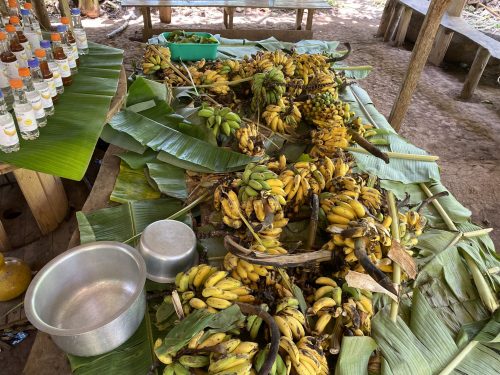
Of course bananas make banana juice. And if you can make banana juice you can make banana beer. Then, with a bit of heat and a still, you can have banana spirit. Interesting…
Close to our school, on the other side of the Kibale Forest is the town of Bigodi which relies very heavily on tourists who visit the chimpanzees and the wonderful bird life in the area.
In the town itself is a small brewery called Rest in Banana. It’s run by Dennis who makes banana beer and banana gin as well as giving demonstrations of how to make banana juice, with free samples offered. Dennis learnt the brewing business from his father, and has found a perfect tourist attraction.
Dennis gave Liddy a personal demonstration of how to make banana juice. First he took some small peeled ladyfinger bananas of different ripenesses and crushed them up in a large bowl using his hands.
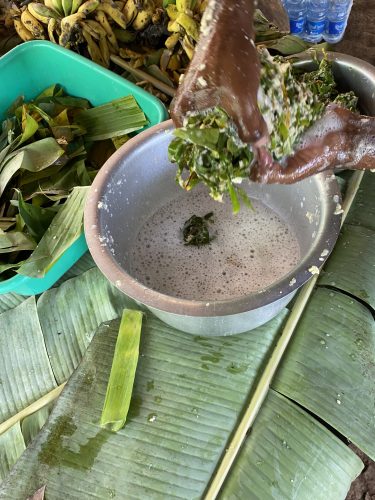 The crushed bananas were still very sticky so he added some clean banana leaves and continued to squeeze the pulp and the leaves with his hands. After a few minutes the crushed pulp turned to liquid, and the amazing aroma of bananas filled the air.
The crushed bananas were still very sticky so he added some clean banana leaves and continued to squeeze the pulp and the leaves with his hands. After a few minutes the crushed pulp turned to liquid, and the amazing aroma of bananas filled the air.
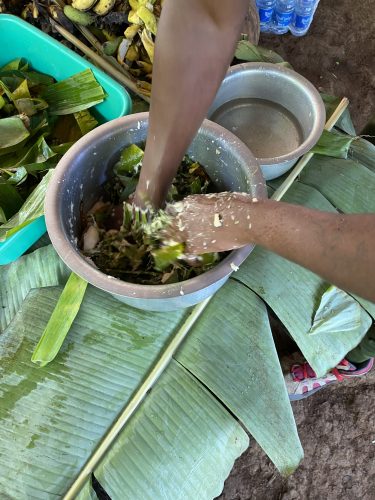
Another clean banana leaf was cut from a handy tree and made into a cone held over a plastic bottle. Most of the crushed leaves from the bowl were then put into the cone and the liquid poured through this filter directing the resulting milky liquid into the bottle.
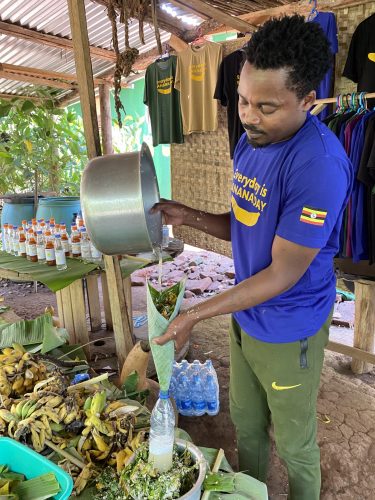
As easily as that, the fresh banana juice was ready to drink.
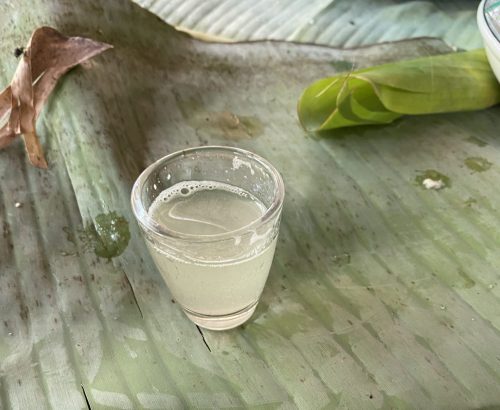
Dennis went on to explain that if dried and roasted sorghum was added to the juice and left in a big drum for about 10 days, it fermented into banana beer. Only a few yards away he had an oil drum still over a fire. This was where he distilled the beer into spirit gin of strengths from 40% to a mind-boggling 60%. All the gins are apparently very good with mixers.
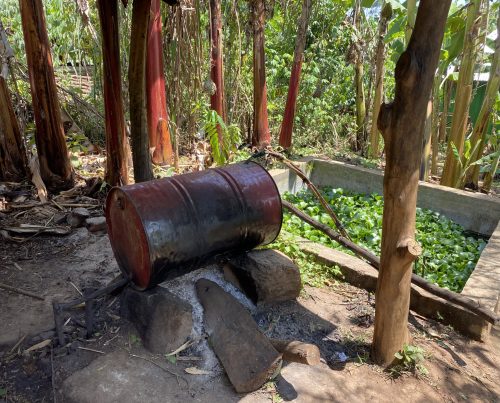
The beer and gins were available to sample and buy. The local people do drink these brews but also use them medicinally for a number of ailments.
Dennis explained that provided he paid his taxes there was no restriction on the distillation of juice to make the gin. Moonshining at its best.
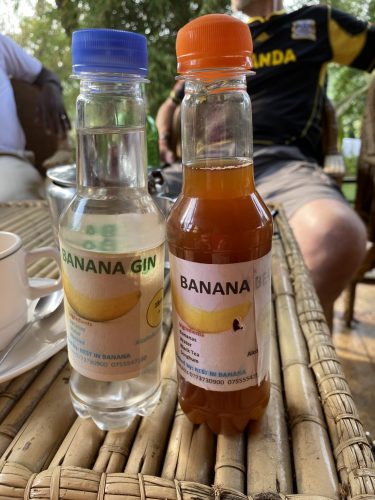
A small bottle of 40% gin found its way back to Scotland in a suitcase for a small G&T with added Ugandan sunshine!





